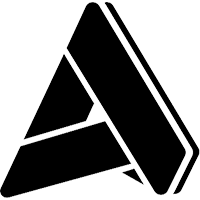Quick links
What Is CRM (Customer Relationship Management)?
What Is CRM (Customer Relationship Management)?
4 Feb 2020
 Aptean Staff Writer
Aptean Staff Writer 
What Is CRM Software?
CRM Software is a software system that manages a company’s interactions and relationships with both current and potential customers. CRM software (customer relationship management software) enhances the customer relationship through managing customer interaction, tracking leads, and streamlining processes. CRM’s overall goal is to increase sales by improving business relationships.
What Is CRM Software Used For?
CRM (customer relationship management) software is mainly used to increase business revenue through the improvement of a business’s relationship with its customers. A robust, modern CRM is also used for the following:
To consolidate all company data into one central space. CRM acts as a hub for all team members to access needed information including, contact information, communication history and customer history. With the ability to update data in real-time, the chances of duplicate data entry and inaccurate information dwindles.
Increase sales opportunities. With CRM’s ability to automate many time-consuming tasks, sales teams are able to spend more time on the road meeting with current and potential clients. CRM also helps sales representatives with building a sales process, creating a step-by-step map on closing deals and reducing sales cycle lengths.
Shift and maintain focus on your customers. By placing all information into one central space so that customer needs are tended to and sales teams can quickly move through their sales cycle, CRM keeps the focus on the customer, who are the heartbeats of every business. CRM helps businesses anticipate customer needs, which improves the customer service experience.
How Do CRMs Work?
Maintaining solid customer relationships is essential, but with hundreds, maybe thousands, of customer touchpoints, it is nearly impossible to remember every detail of every conversation. CRM fixes this.
Customer Relationship Management software stores customer information, interactions and analytics within a central database that users can access anywhere, anytime. In more detail, CRM systems assist with:
Sales: Generate and assign leads, track where each customer is in the sales cycle, view customer history and keep tabs on accounts and renewals with sales CRM.
Service: Track sales and service records and resolve customer service incidents.
Marketing: Manage marketing campaigns, send targeted emails and qualify leads. Some CRMs also have include marketing automation functionality.
Analytics: View trends, drill into the details of your pipeline and build customized reports for a thorough analysis.
Key Features of CRM Software
Contact Management - A 360° View of Your Customers
Relationships are the lifeblood of your business. The more you know about your contacts, the more successful your business will be. CRM is a powerful contact management solution that helps you keep track of all your customers, leads, partners, vendors, suppliers, etc. You can use it to store key contact information, email and communication history, purchase history, case history, preferences, notes, documents, contracts, quotes, invoices and more, giving you a complete picture of every relationship. Best yet, because this information is stored within a centralized database, it can be accessed by different users in real-time.
Lead Management - Complete Visibility of Your Opportunities
If you’re working on closing multiple deals at various stages within your pipeline, or have a long or complex sales cycle, keeping track of all the details can be challenging. Opportunities can fall through the cracks. That’s where Customer Relationship Management software comes into play. It gives you complete visibility into your sales pipeline so you can efficiently move leads through your pipeline, guiding reps through predefined steps to the final sale.
Lead and opportunity management also gives you a better understanding of how your sales cycle works, so you can make tweaks when necessary. With more information at your fingertips, you can uncover the best opportunities and focus resources where they matter most.
Customer Service Management - Deliver Outstanding Customer Service
A good CRM should not only help you obtain new customers, but also help you retain the ones you’ve already won. Many CRM solutions offer customer service tools for assigning and escalating cases, tracking incidents and managing customer contracts and agreements. It can also be used as a central database to collect and store product expertise so your service team can quickly and easily find the information they need to resolve issues.
The customer service functionality in CRM is designed to act as a central hub containing accurate, up to date information about all of your customers and their communications with your business.
Marketing Management - Plan and Execute Targeted Marketing Campaigns
Does your company concurrently manage multiple marketing campaigns across several channels? If so, you may benefit from CRM’s campaign management functionality. This feature enables you to execute multi-phased marketing campaigns that can be targeted based on customer demographics, online behaviors, purchase patterns, customer support incidents and more. You can design campaigns to attract new customers, nurture leads, target a specific audience, cross-sell products and so forth. Some CRMs also include email marketing functionality that’s fully integrated with your contact database, so you can send highly targeted emails.
Best yet, you can use CRM software to analyze the effectiveness of each campaign and make data-driven decisions to increase company profitability.
Automation - Save Time and Enhance Productivity
Customer Relationship Management software isn’t just for helping cultivate relationships; it’s also a huge time-saver. CRM workflow automation takes the tedious and time consuming tasks that sales reps, managers and other users perform on a regular basis and automates them, freeing up more time to focus on sales-generating activities. Some examples of CRM automation in play include generating follow-up reminders after meetings, converting emails into activities, scheduling alerts before a task is due, converting website visitors to leads and delivering targeted marketing messages based on a customer’s purchase patterns. These workflow automation features can be as simple or complex as you need but are ultimately designed to save time, eliminate wasteful work and improve productivity.
Characteristics of a Great CRM System
Simple Integration
Rather than spending loads of time doing data entry and transferring data to your CRM, a great system will give you the ability to quickly and seamlessly import data from different software and third-party tools, eliminating manual data importing and dual data entry. It’s a win-win.
Ease of Use
No matter how extensive a CRM system is, if users can’t easily learn it, your system will basically be rendered useless. Software with intuitive interfaces and great user training and support is crucial. The point of CRM is to increase efficiency and an easy to use software helps drive that point home.
Adaptability and Growth
Growth is an important indicator of success, whether that is in employee size, with customers or both. With those changes, you need adaptability and flexibility from your chosen software. A great CRM software fits your current needs but is also equipped to grow with you.
Benefits of CRM
Thanks to Customer Relationship Management’s dedication to strengthening the relationship between a business and its customers, there are many benefits that come along with using this software.
Sales Efficiency
From lead generation to nurturing relationships to managing your pipeline, sales CRM enables you to streamline processes and automate everyday tasks. It supports your sales reps throughout every phase of the sales cycle, such as scheduling appointments and follow-up reminders, logging customer information, tracking communication history, writing emails, generating quotes and proposals and building accurate forecasts.
With CRM, your sales team has immediate access to the information they need at exactly the time they need it, no matter where they are. Even the most disorganized salespeople can stay prepared, orderly and on top of their game.
Improved Customer Service
One of the most obvious benefits of CRM is seeing a direct improvement in the way your business provides support and assistance to your customers. CRM allows you to capture a customer’s journey, from prospect to purchaser. At your fingertips, you can view their information, preferences, purchase history, communication history and more. This insight places you in a position to better understand their needs, anticipate their next moves and provide outstanding customer service.
Employee Collaboration and Improved Communication
Information stored within your CRM system isn’t just for your sales team! You’ll quickly discover many other departments will find value in having all that customer information at their disposal. For example, your marketing department can use customer purchase history to develop targeted marketing campaigns that deliver personalized messages and help nurture relationships over time. Your support team can use a customer’s communication history to resolve incidents quickly and efficiently.
CRM allows different departments within a company to share information and function as a collaborative team, improving communication and efficiency.
Support for Managers
CRM offers many benefits for sales managers, helping them stay informed, make better business decisions and achieve faster results.
Not only does it allow managers to keep track their team’s overall productivity, it gives them a birds-eye view into their sales pipeline so they can pinpoint additional opportunities and challenges. A good CRM also offers customized reports and dashboards for managers so they can make data-driven decisions.
CRM Issues to Avoid
While Customer Relationship Management software can be incredibly useful, there are traps businesses should avoid before, during and after implementing your CRM system in order to maximize the benefits and usefulness of the software.
Failing to Assess Requirements
Not defining a clear-cut set of goals and requirements can be a recipe for disaster. Before searching for a vendor, take some time to establish your business goals, needs and CRM requirements. For example, do you want to use CRM to grow your customer base? Build a stronger social media presence? Improve customer service? How many users will need access to the software? What is your budget? Do you need to integrate the CRM with any third-party tools such as Outlook? Are you looking for marketing automation or call center functionality as part of the CRM package? These are all important questions that need to be addressed early on so you can select the best CRM for your needs.
Lack of User Adoption
When using a new software, it is common to deal with user resistance. Change is tough, especially if you don’t understand the purpose of the change, or why it will benefit you. To maximize user adoption and handle resistance to the new CRM, try to include all users (not just management) in the CRM selection process. Getting their input and listening to their concerns will instill a sense of ownership and accountability among employees. Be sure also to keep communication channels open and clearly explain how everyone will benefit from the new software. And, above all else, don’t underestimate the importance of CRM training! Proper training is essential to user adoption.
Overlooking Training
At the end of the day, if your users don’t know how to use the software, you will not be able to take advantage of all the benefits of CRM. Providing proper training ensures all users understand the features and functionality it offers and eliminates the possibility of costly mistakes down the road. Not only will training help your users adopt the system more quickly, they will also be more confident in working with it, helping to get others on board. Be sure to ask potential vendors if they offer user training and what to expect from the on-boarding process. Some vendors offer training online, in person or a combination of the two.
Who Can Use CRM Software?
No matter the size of your business, if you have customers or the need to manage relationships with clients, vendors, partners, suppliers, etc. you can benefit from a Customer Relationship Management solution.
Startups
Startups are new businesses that generally have a smaller number of employees and clients, as they are just beginning in their respective industries. Investing in a CRM for startup business is a smart way to plan ahead and prepare for future growth. It also helps these businesses stay organized and efficient from the very beginning, without having to un-learn bad habits down the road.
Small and medium sized business (SMB)
Small to medium sized businesses have more industry experience, more employees to manage and usually more customers. They probably have a larger sales team working multiple deals at various stages within the sales pipeline, making it more challenging to keep track of all the details without missing an opportunity. This is where CRM can make a huge impact.
Large enterprise sized businesses
Large and enterprise level organizations have even more moving parts and added complexity: more employees, more locations, a more extensive supply chain, and more departments, employees, and clients to manage. For these businesses, CRM can behave as a virtual assistant. Recording copious amounts of customer information that is impossible to do manually, is key. Like SMB’s, CRM also brings organization, placing all your data in one centralized location. CRM also makes user collaboration easier and makes sure communication doesn’t slip to the wayside.
Choosing a CRM
The best type of CRM is one that is carefully selected to fit your organization’s unique needs and requirements. Don’t get distracted by bells and whistles. Instead, make note of the features and capabilities you need before you begin interviewing vendors and evaluating systems.
Features
Identify pain points, define your goals and then determine which features you will need to achieve these goals. Some features are universal for all CRM solutions (such as contact management), while others may be more unique (such as Outlook integration and mapping). After determining your features wish list, evaluate each CRM system and ask the vendor how it directly fits with your criteria.
Deployment
Some vendors offer CRM software that can be deployed in the cloud, on-premise, or a hybrid combination of the two. In general, cloud-based CRM has lower upfront and maintenance costs but will increase in cost as you add more users. On-premise deployed software will have higher upfront and maintenance costs, but you will own the software so the longterm costs will be lower. Be sure to compare cloud vs. on-premise CRM before you decide and choose the deployment that best fits your situation.
Reputation
Recommendations from people you trust can be a great way to find a reliable CRM provider. Talk to your business partners and customers and ask what solution they use and how they like it. Have they ran into any pain points? If so, how responsive is the customer support? First hand experience can speak volumes, so ask around.
Want to find out how our customer relationship management software, Aptean CRM, can help your business? Contact us today to chat with one of our experts or schedule a demo.
Discover Industry-Tailored Software Built by the Experts
With deep technical know-how and a commitment to innovation, we deliver tailored software to businesses like yours. Reach out today for your free, no-obligation consultation with an industry expert.



